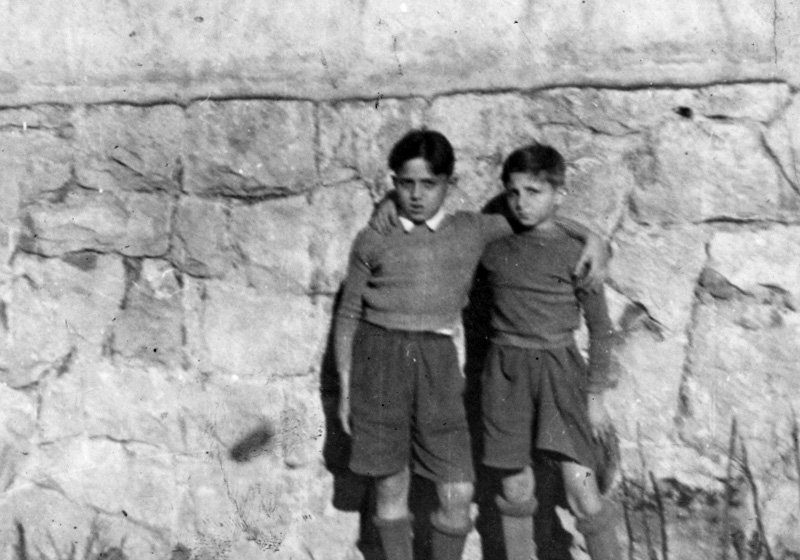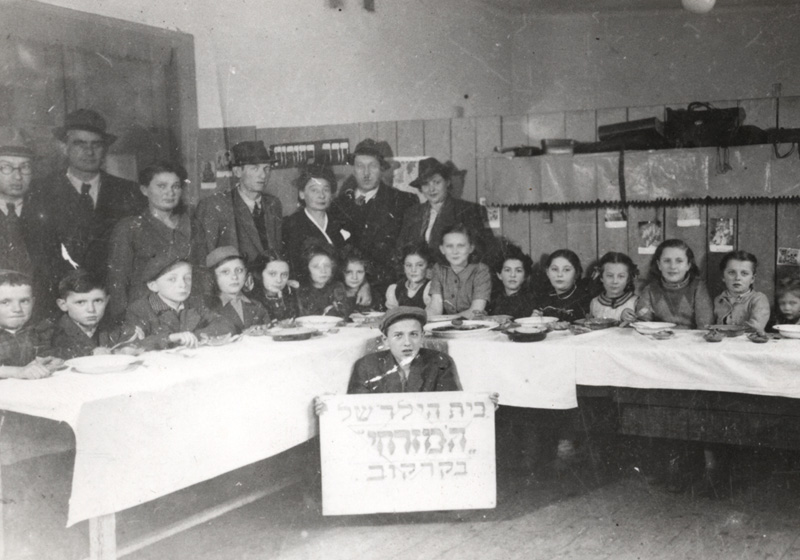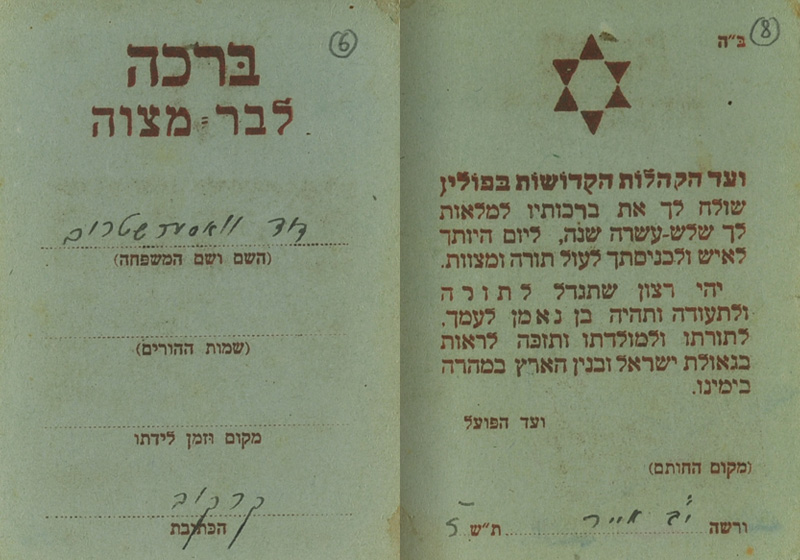Children's Homes for Holocaust Survivors
"My Lost Childhood"
David and Pesia Wasserstrum: Siblings at the Zakopane Children's Home
"And there, for the first time, I had a friend, Pola", relates Penina Levenberg (Pesia Wasserstrum), recalling her stay at Lena Küchler's children's home with her brother David in Zakopane after the war. Mordechai and Chana Wasserstrum lived in Dębica, Poland and made a living in trade. They had four children: Zipporah (b. 1929), Tova (b. 1931), David (b. 1933) and Pesia (b. 1935). The family maintained a religious Jewish lifestyle.
On 8 September 1939, the Germans occupied Dębica, and immediately began seizing Jews from their homes for forced labor, and looting their property. The Wasserstrums fled from Dębica to a neighboring village, and from there, Mordechai escaped eastward into Soviet territory, believing that the danger was far greater for men than for women and children. Chana and the children returned to Dębica, together with Chana's younger sister Esther. After a time, they moved to the town of Radomyśl Wielki, where they had relatives, and moved in with their brother. Due to the cramped and difficult living conditions, Esther, Chana and the children left, and moved to the home of other relatives in Dąbrowa Tarnowska. In the summer of 1942, prompted by the overcrowding and the fear of being caught in one of the Aktions, they escaped, together with more family members to the local forests and dug hiding places for themselves there. All contact with Mordechai was severed.
From time to time, the Germans would organize raids of the forest. The family members learned to spread out, so that even if some of them were caught, there would still be a chance of others surviving. During one of these raids, seven-year-old Pesia ran deep into the forest, losing her shoes. She found herself alone. Her brother David located her and gave her one of his shoes. Pesia told him that she had had enough, and that they had to turn themselves in to the Germans, but David disagreed. The two children were alone for many long hours until their aunt Esther found them. In April 1943, Zipporah and Tova were caught in a raid and murdered by the Germans. Chana, David and Pesia remained in the forest. Towards the end of the war, they found refuge with a Polish family in the village, and after liberation, they reached Krakow. Chana sent David and Pesia to Lena Küchler's children's home in Zakopane for while, so that she could get organized and make arrangements for them all.
Penina Levenberg (Pesia Wasserstrum) recalls:
It was dangerous. … the journey was also fraught. Lena [Küchler] made sure we were transported in a covered truck, and we arrived at Zakopane. There were already children there. … it was the first time that I started to study. I was already ten years old. I went into first grade, which was also second grade. … and there was a room, and also a bed. … There were older children who had come from Russia, pretty delinquent, who had stolen in order to survive. There were also children like us, from forests, ghettos, camps. … The children themselves were responsible for putting on plays and for cleaning up. … And there, for the first time I had a friend, Pola Elbin. … She taught me how to tell the time. … arithmetic, one plus one, the times tables. … We were there for a few months. … it was dangerous there too. We were shot at. They would take us out of our beds into the corridors so that we would be safe, and there were guards. … we were scared there too.
In 1946, Lena Küchler left Zakopane with a group of orphaned children. David and Pesia stayed there until their mother Chana came and took them to Krakow. Chana entrusted them to a Polish Communist children's home, and when David was nearing his Bar Mitzvah, she moved them to a "Mizrachi" children's home where they attended a Jewish school and were exposed to Zionist ideals.
In 1949, Chana and the children left Poland for Paris. They received assistance from the Joint Distribution Committee, and the children decided that they wanted to immigrate to Israel. Their aunt Esther had survived and moved to the US. The fate of their father Mordechai is unknown. The last sign of life from him was a letter that he sent from the area of Stanisławów in 1941 to his brother Yehezkel in Eretz Israel (Mandatory Palestine).
In May 1949, Chana and her children immigrated to Israel. After some two years in an immigrant absorption center, they settled in Yad Eliyahu in Tel Aviv.
Before they left Zakopane, David collected dozens of photographs of the children's home, and took a small autograph book in which the children wrote dedications to their friend Pesia. After David's death, his children donated the photographs and the autograph book to Yad Vashem as part of the "Gathering the Fragments" project, some of which are displayed here.




![Dedication that Pola Elbin [Elbinger] wrote to her friend Pesia Wasserstrom at the children's home in Zakopane. Poland, 1946 Dedication that Pola Elbin [Elbinger] wrote to her friend Pesia Wasserstrom at the children's home in Zakopane. Poland, 1946](images/zakopane/wasserstrum/03s.jpg)
